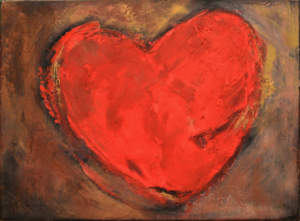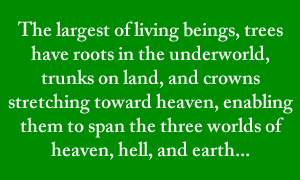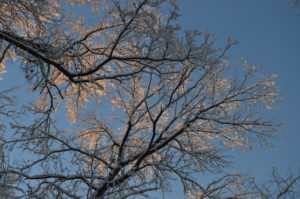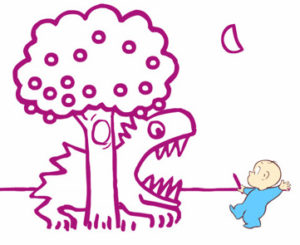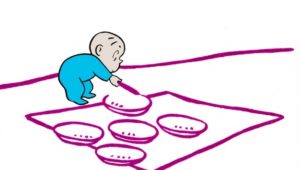At Least I’m Not a Dancer — An apologia
“We seldom realize, I think, how very much we really are in the hands of
the dictionary. We think certain thoughts; we have certain experiences; and
then language, with its hard and fast boundaries, says, “You shall not say
that wonderful thing—you shall only say this—and we find on paper the pale
lifeless shadow of the thing that came to life in our soul.” — Emmet Fox
Writing is my weakness and it’s a nerve-wracking practice, but I can’t
help it—my blood is so doggone noisy, I have to write stuff down to make it
quiet. Plus my genes are always quarreling inside of me, not to mention all
those environmental and socioeconomic factors that contributed to my need to
scribble words onto the page. Carl Jung knew what he was talking about when
he said: “Nothing so promotes the growth of consciousness as the inner
confrontation of opposites.” Back in 1954, I plopped into the world, the
fourth child and baby girl of a profoundly sober Christian Virgo mother and
a sad, alcoholic dreamer of a father. And for the first fifteen years on Planet Earth
there was a whole lot of shaking going on.
A mother, they say, is the first book a child ever picks up and the last
one they put back on the shelf. Sounds right to me. I suppose then that a
father is the second book picked up and the next-to-the-last one put down.
Ever since I can remember, I’ve been fascinated and appalled by how unalike
my parents were. I spent years worrying about their lives and ignoring my
own. But when I finally got down to peeling the sweet Vidalia onion of
myself to its pungent core, a writer emerged, shrugged her shoulders and
said, Well, at least I’m not a dancer—which is a good thing because I lack
the grace for that muscular art.
My love affair with words began early. In first grade, I met twenty-six
lifelong friends—letters that were sometimes big and sometimes small
according to where they found themselves in a word or a sentence.
Miss Graham, my teacher was an up-to-date old maid who smelled like pickles. A
phonetic genius, she dredged my imagination for interest in Dick, Jane and
Spot, who led quite boring lives because they were forbidden to do anything
that required more than six letters just so I could learn to read. And for
some reason, the words settled into my fat brain like orphans who’d found a
good home without even trying. The part I liked most about learning to write
was erasing. I loved the way it smelled when I rubbed the pink end of my big
fat pencil across the cheap lined paper, exterminating mistakes easily, and
brushing them onto the floor as if they never occurred.
Twenty-five years ago, I wrote this sentence in my journal: My life is
about three things: words, love, and human beings. The grandiosity of that
statement surprised me, but now I understand that it wasn’t grandiose at all—it was a simple
profession of faith. Writing has helped me become a more decent person than I would have
been otherwise. It has helped me separate who I really am from my ego.
Another reason I became a writer was to honor silence. I have always wanted to make sense
out of my precarious life. As a child, I was quiet. I observed. There seemed to be something
hidden in everything I saw. My senses told me there was something Else. I could smell it. I could
feel it. Sometimes, I could even taste it. But I could not name it. But when I learned to listen to
this voiceless force, I discovered I had a voice deep within me.
“May God forgive me this sin of speech,” Nietzsche once wrote, and even
though he lamented that he was only a poet, I believe language was his only
earthly salvation. Indeed, it has been mine. One of the most important
things I have learned to do as a writer is to acknowledge that other, bigger Author, who
sometimes shows up for work when I sit down to write. Some writers call it inspiration.
Some call it God. I call it the Holy Spirit
Maybe it’s just Silence full of Itself, inviting me to . . . dance.
Published by South Carolina Review, January 2007
Karon Luddy was born in Lancaster, SC, the fourth of six children of hardworking, salt of the earth parents, and moved to Charlotte in 1976. During a midlife renaissance, Karon resigned from Apple Computer to pursue her lifelong passion—literature. In 2005, she earned an MFA in Creative Writing in Fiction from Queens University, yet poetry has been a constant in her creative life. 2007 saw the publication of her first book of poetry, Wolf Heart (Clemson University Press) and her first novel, Spelldown (Simon & Schuster). Karon is currently working on a poetry collection, Circling God.

